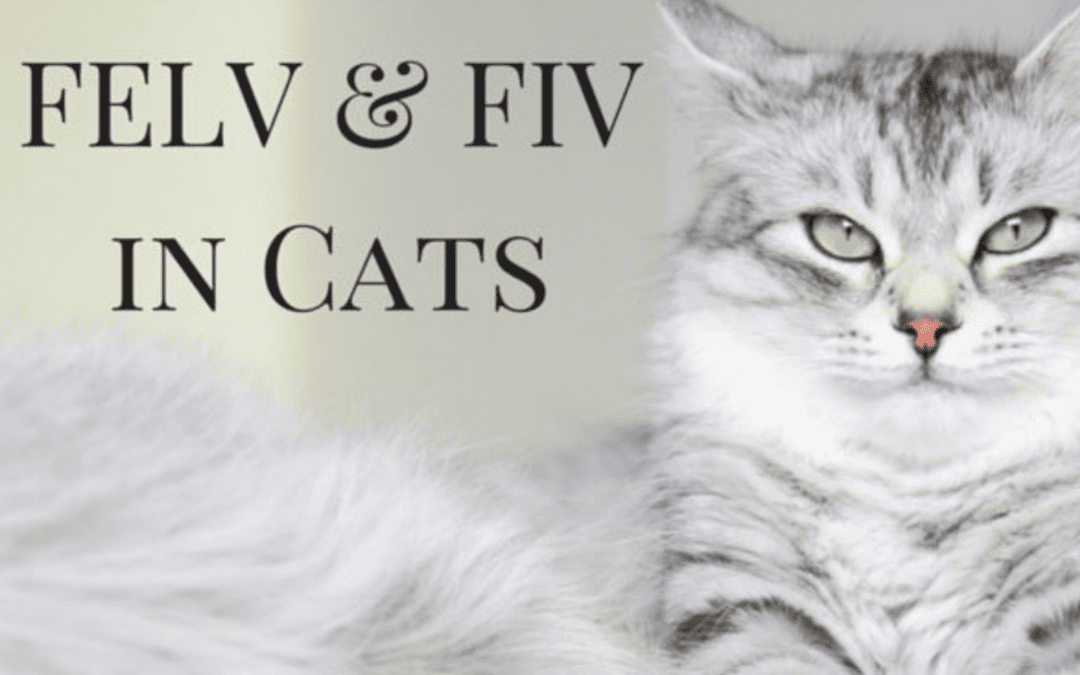Feline Immunodeficiency Virus (FIV) and Feline Leukemia (FeLV) are two of the most infectious diseases affecting cats that have no cure. Both viruses weaken the immune system, making our feline companions more susceptible to other illnesses. FIV and FeLV are diagnosed using specific blood tests. While FIV vaccines exist, they are not widely used. On the other hand, FeLV vaccines are recommended for all at-risk cats. Early diagnosis and preventative care are critical in protecting and maintaining a cat’s quality of life!
FIV is similar to HIV in humans but is specific to cats. It is primarily transmitted from cat to cat through deep bite wounds. In rare cases, an FIV-positive mother can potentially pass it on to her kittens, but this is uncommon. A higher risk occurs if a female cat contracts FIV while pregnant, as it can spread to her kittens.
Infected cats can live for years before showing any symptoms of FIV. Common symptoms include: poor coat condition, fever, inappetence, inflammation of mouth and gums, chronic/recurrent infections in the eyes, skin, upper respiratory tract, or bladder, constant diarrhea, seizures, behavioral changes, balance issues.

While there are a lot of similarities between FeLV and FIV, there are also many differences. Unlike FIV, FeLV can be transmitted through routine, everyday activities between cats. It can be spread through direct contact with infected saliva, blood, tears, urine, and feces. Mutual grooming, sharing food and water bowls, and biting (to any degree), can transmit FeLV. Infected mothers can spread the virus to their kittens during pregnancy or while nursing. In addition, FeLV is different in that it can lead to cancer, blood disorders, abortion of kittens and other reproductive failures, and enlarged lymph nodes.
Prevention, prevention, prevention!
The best way to ensure your cat’s safety from FIV and FeLV, is to keep them indoors. Testing new cats before entering a multi-cat household is essential. If your cat spends any time outdoors, make sure to vaccinate for FeLV. Even other indoor-only cats in the same household as an indoor/outdoor cat should receive the vaccination as well. Spaying and neutering your feline family members will also help reduce aggressive behaviors that lead to bite wounds!

If your cat needs vaccinations, or hasn’t been spayed or neutered yet, call us today for an appointment!
Animal Works Veterinary Surgery – Fort Collins, CO

